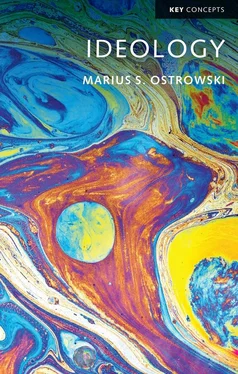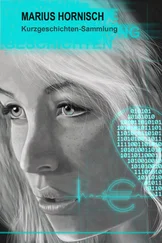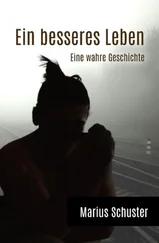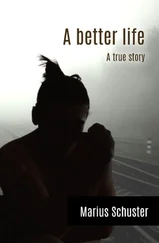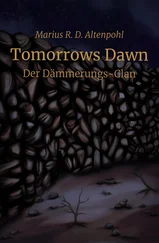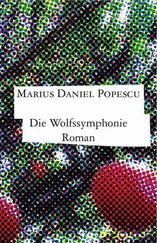Different traditions and approaches within the study of ideologies have different views on each of these six debates. Some of these views are well known within and even beyond social research: orthodox Marxism’s assessment of ideology as false (an illusion), temporary (a feature of the capitalist present), and singular (the total assemblage of pro-capitalist values and institutions); or the assumption that it is plural (divided into rival families), collective (held by groups of voters and legislators), and explicit (expressed in manifestos and opinion polls) in comparative-political party systems studies. Of course, these differences are a major part of what delineates such traditions from one another, partly because of and partly in parallel to deeper divergences in their methodological assumptions. Yet even where they happen to agree, they may do so for entirely unrelated reasons: for example, a view of ideology as individual may stem from an atomistic conception of the structure of society or a focus on the priority of subjective experience. What makes these questions central , however, is the fact that every tradition finds itself in the position of having to take a stance – whether one-sidedly ‘committed’ or equivocally ‘compatibilist’ – within each one of these debates. This means that these six ‘contrasting pairs’ are best conceived as binary poles at the extremes of six ‘ideologological’ spectrums, with ideology-theoretical approaches falling somewhere in between them on each one: for instance, seeing ideology as ‘more false than true’, ‘largely necessary’, ‘definitely plural’, ‘both explicit and implicit’, and so on. It is thus possible to ‘map out’ traditions of ideology analysis in terms of the constellation of points they occupy on all of these spectrums: for example, social psychology’s view of ideology as (roughly) true–(fairly) necessary–permanent–plural–(mainly) individual–explicit, or critical discourse analysis’s reading of it as false–(reluctantly) necessary–permanent–(more) plural–individual and collective–explicit and implicit, and so on. By the same token, as a heuristic exercise, we may find it useful to ‘map out’ our own views on each of these questions to see whether we find ourselves more sympathetic to some traditions than others, to a hybrid combination of their positions, or to a whole new ‘ideologological’ conception entirely.
§2 From the study of ideology to ideology studies
Aspects of these questions have formed part of the standard material of philosophy and social theory since at least the Renaissance. Epistemology and philosophy of mind, language, science, and religion, and branches of early ethnography and cultural studies have long considered the relationship of abstract ideas to reality as either ‘inner essences’ or mediated representations, whether we can acquire reliable knowledge about the world, whether morality is real or synthetic and absolute or relative, the nature and sources of popular opinions, and so on. But, since around 1800, these questions have been increasingly corralled together under the rubric of addressing a specific social phenomenon. The first to use the term ‘ideology’ for this phenomenon were a group of late Enlightenment philosophers in post-Revolutionary France, who saw in it the promise of a new science of ideas, mental perceptions, and thought processes. But its rise to prominence (and its metonymic shift) came with the Marxist transformation of social thought from post-Hegelian philosophical materialism into the embryonic outlines of sociology, which tied ‘ideology’ explicitly to the cultural manifestations of capitalist, classist society. At the turn of the 1900s, sociology’s crystallisation as a discipline with many parallel traditions (positivist, anti-positivist, conflict-theoretic, functionalist, etc.) introduced new focuses on the collective and individual dynamics of crowd psychology and the role of propaganda and the media, as well as non-classist explanations for ideological support. Meanwhile, the growing prominence of scientific and statistical research methods enabled new approaches to studying ideology via polling, quantitative survey research, and breakdowns of electoral results. By the mid-1900s, the ascendancy of social science pushed the study of ideology heavily towards comparative empirical assessments of voters’ and legislators’ policy preferences and the demographics of pro- and anti-system movements. At the same time, new challenges and modifications to classical social theory (especially the rise of structuralism and poststructuralism) found ‘ideology’ increasingly inflexible and outmoded as an analytic tool, spurring the development of new lexicons to explain the conditions and impulses for human thinking, expression, and other social actions.
Parallel to these developments, the same period saw the emergence and consolidation of a growing number of ‘schools of thought’ that fit the description of integrated bodies or ‘tellings’ of ideas – which are increasingly defined as (and accept the label of) ‘ideologies’. From the early 1800s, the amorphous strands of post-Enlightenment political, economic, religious, and legal thought coalesced into a ‘Big Four’ of increasingly distinct ‘families’ (conservatism, liberalism, socialism, anarchism), the inaugural forms of their respective ideological traditions. In the late 1800s and early 1900s, these ‘Big Four’ underwent major transformations in response to four new ideological arrivals (social democracy, communism, Christian democracy, fascism), the results of split-offs from the conservative and socialist traditions. The mid- to late 1900s saw further transformations and shifting fortunes among all eight of these ideological families and, thanks to seismic shifts in the economic, political, and cultural constellations of global power that have continued into the 2000s, the ascendancy of two more (libertarianism, green ideology). All the while, developments in these ten ideological traditions were accompanied by a cumulative succession of narrower ideological currents that coursed within and between the ‘Big Four’ and their rivals – from nationalism and republicanism in the 1800s to feminism, religious ideologies, and ideologies of race in the 1900s, and finally to queer ideologies, populism, and ideologies of (dis)ability at the turn of the 2000s. This proliferation of rival intellectual movements led to competing ‘canons’ of symbolic, literary, and media outputs tied to the rising importance of various (often cross-cutting) social groups – including groupings by geography, language, occupation, wealth and income, age and health, sex, gender, and sexuality, religion, race and ethnicity – which together fostered alternative accounts of ‘which ideas matter’.
For much of this time, the ‘study of ideolog y ’ and the ‘study of ideolog ies ’ operated with considerable mutual autonomy and internal diffuseness. But by the turn of the 1980s, and accelerating prodigiously since the 1990s, a major wave of new appreciations of ideology and ideologies have emerged that seek to unite the study of both in a systematic, holistic way. They do so from a wide range of disciplinary angles: social and political theory, intellectual history, philosophical hermeneutics, sociolinguistics, communication studies, social psychology, and political science. Their shared aim is to elevate ‘ideology’ from an instrumental factor in analysing other social phenomena and a tool in other subfields’ arsenals into a dedicated ‘subject’ and subdiscipline in its own right. Early markers of the emergence of ‘ideology studies’ and its multiple theoretical approaches were laid down by a spate of books that explicitly tackled the concept’s definition and social function and offered the first syncretic overviews of the history and ‘state of play’ of ideology studies. These ranged from conceptual histories of ideology theory by Hans Barth (1977) and Jorge Larraín (1979) to evaluations of its latest developments by David Manning (1980), Howard Williams (1988), and David McLellan (1995), along with a mixture of both by Terry Eagleton (1991); from the critique of ‘thinking in ideology terms’ by Kenneth Minogue (1985) to the defence of ideology analysis as a tool of critique by Raymond Geuss (1981); from refinements of existing traditions by Göran Therborn (1980) and John B. Thompson (1984) to wholly novel accounts by John Plamenatz (1970), Martin Seliger (1976), and Raymond Boudon (1989). At the same time, academic journals were founded that made explicit space for ideological analysis, including Rethinking Marxism (1988–), Constellations (1994–), and Historical Materialism (1997–) in the Marxist tradition, Philosophy and Social Criticism (1973–) and Theory, Culture & Society (1982–) in a more ecumenical vein, and the Journal of Political Ideologies (1996–) as the first dedicated ideology studies journal, alongside the formation of university centres dedicated partly or fully to the study of ideologies, at Essex (1982–), Boston (1988–2010), Cambridge (1994–), Oxford (2002–11), Queen Mary (2007–), Nottingham (2013–), St Andrews (2013–), and Helsinki (2016–).
Читать дальше
